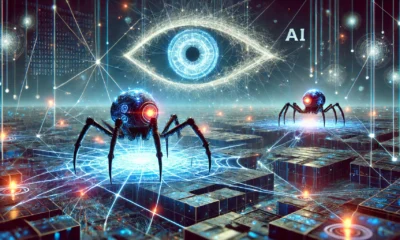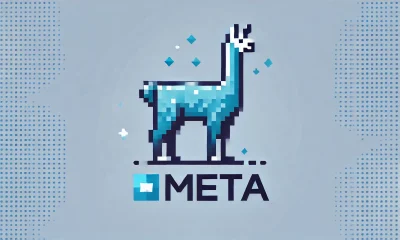AI Careers 101:
What is a Data Scientist? Salary, Responsibilities, and Roadmap to Becoming One

By
Haziqa Sajid
A data scientist is a person who gathers, preprocesses, and analyzes data to help organizations make data-driven decisions. Data science has been a buzzword in the job market for a while now, but today, it is one of the fastest-growing job roles. Moreover, the median data scientist salary is $125,891 per annum, according to Glassdoor.
But what is data science? Observation and experimentation is science. Observing the hidden patterns in data and experimenting with different machine learning and statistical techniques to make a data-driven strategy is called data science.
In this blog, we will learn the roles and responsibilities of a data scientist, the roadmap to becoming one, and the salient differences between a data scientist and a data analyst.
Responsibilities of Data Scientist
The responsibilities of a data scientist may vary from organization to organization depending on its objectives, data strategy, and the size of the organization. Responsibilities on a day-to-day basis are as follows:
- Gather and preprocess data
- Analyze data to find hidden patterns
- Build algorithms and data models
- Use machine learning to forecast trends
- Communicate results with the team and stakeholders
- Cooperating with software engineers to deploy the model in production
- Stay up to date with the latest technology and methods within the data science ecosystem
How to become a Data Scientist?
Bachelor’s degree
Bachelor’s degree in Computer Science is a good leg up for becoming a data scientist. You get to familiarize yourself with the programming and software engineering principles. Bachelor’s in statistics or physics can also set up a good foundation.
Learn the skills
Programming
According to an analysis of 15,000 data science job postings, 77% of Data science job postings mentioned Python, and 59% mentioned SQL as the skill required for applying for the position. Hence, learning Python and SQL is an absolute must. After learning programming 101, you need to gain expertise in Machine Learning libraries and frameworks, which are as follows:
- Numpy
- Pandas
- SciPy
- Scikit Learn
- Tensorflow/PyTorch
Data Visualization
Our brain processes visual information 60,000x faster than written information. Presenting the insights obtained from data analysis using dashboards is called Data visualization. In data visualization, data scientists use suitable graphs to convey the information to the stakeholders and the team. Proficiency in any of the following tools is sufficient for data visualization:
- Tableau
- PowerBI
- Looker
Machine Learning
This step goes adjacent to programming. An understanding of machine learning is needed to predict future trends on the unseen dataset. Fundamental ML concepts every data scientist must know are as follows:
- Supervised Learning, Unsupervised Learning, Anomaly Detection, Dimensionality Reduction, and Clustering
- Feature Engineering
- Model Evaluation and Selection
- Ensemble Methods
- Deep Learning
Many EdTech platforms and courses teach the above-mentioned technical skills needed to become a data scientist.
Big Data
Big Data, Big Business. 1 in 5 job postings expects applicants to possess big data handling skills. Knowledge of Spark and Hadoop Frameworks is required for processing big data.
Build Portfolio Projects
Once you’ve completed your data scientist curriculum roadmap, it’s time to put your knowledge into practice by building data science projects. Do value-driven projects by solving problems. Finding real-world data through Kaggle or other credible sources is the best way to start.
Next, apply the entire data science life cycle, which includes: Preprocessing, Analysis, Modeling, Evaluation, and finally, Deployment to your project. Tell the story about your project by writing a blog about the results you achieved. This activity can substitute for work experiences if you are starting.
Soft Skills
To become a data scientist, Soft Skills are just as important as technical skills. Data scientists should be able to communicate technical concepts to stakeholders effectively. Problem-solving and creativity are necessary to make innovative data solutions. Data scientists work with data analysts, data engineers, and software engineers; hence collaboration and teamwork are necessary.
Entry-Level Jobs
Getting an entry-level job in data analytics can be an excellent step to becoming a data scientist. To this end, mentioning portfolio projects in your resume can help you stand out in front of employers. You can switch to a data science role as you gain experience and skills.
Data Scientist vs. Data Analyst: What’s the difference?
Data scientists and data analysts may seem similar. Still, there are salient differences between the two roles, which are as follows:
| Parameters | Data Analyst | Data Scientist |
| Goal | Analyzes data to answer specific business questions | Works on open-ended problems and creates actionable insights using predictive modeling |
| Technical Skills | A data analyst is proficient in SQL, Excel, and data visualization tools | A data scientist is an expert in Python frameworks and machine learning techniques in addition to data analysis |
| Methods | Methods used by a data analyst include regression analysis and hypothesis testing. | A data scientist uses machine learning and deep learning algorithms and architecture to analyze the problem. |
| Scope of Work | Mostly work with structured data, including databases and spreadsheets. | The scope of work is not limited to structured data. A data scientist can also handle unstructured data such as text, image, and audio data. |
The total amount of data created, consumed, and captured was about 64 zettabytes in 2020, and it is forecasted to reach 181 zettabytes by 2025. To actualize the potential of such massive data, we need data scientists. A data scientist analyzes data and provides data-driven solutions. Data scientists should keep themselves updated with cutting-edge research methods and tools to bring the most value.
Want more data science-related content? Visit unite.ai
Haziqa is a Data Scientist with extensive experience in writing technical content for AI and SaaS companies.
You may like
-


Can AI Predict Your Future Health? Inside Delphi-2M’s Disease Forecasting Model
-


Why the Open Web Is at Risk in the Age of AI Crawlers
-


How Microsoft’s TorchGeo Streamlines Geospatial Data for Machine Learning Experts
-


Reimagining the Middle Class in the Age of AI
-


TikTok Introduces Boximator for Motion Control
-


The Most Powerful Open Source LLM Yet: Meta LLAMA 3.1-405B